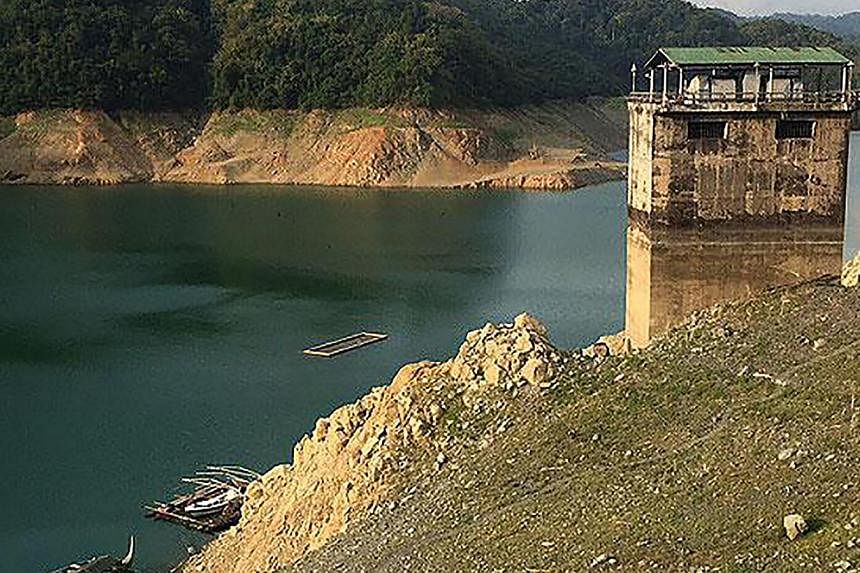The Philippines is in the grip of a heatwave that has killed two people as temperatures soar to a scorching 40 deg C or higher.
In Tuguegarao city, 480km north of the capital Manila, two people died of heatstroke on Tuesday. The city was reported to have baked in heat of up to 42 deg C early this week.
Health officials said Mr Edwin Galupan, 53, was found lifeless on his cassava farm, while Madam Bannawag Lucas, 62, died inside her home.
Reservoirs that supply tap and irrigation water across the main island of Luzon are drying up fast, threatening crop harvests. This could force the nation to import more rice and corn this year.
The Angat Dam reservoir, the main source of water for more than 21 million people in metropolitan Manila and seven adjacent provinces, may shut off irrigation to farmlands in the next five days if its water level falls below the critical 180m mark. As of 6am yesterday, the water level was 180.95m. The normal high water level is 212m.
The reservoir irrigates around 27,000ha of farmlands in Bulacan and Pampanga provinces, and supplies tap water to 14 million inhabitants of Metro Manila, a metropolis of 14 cities and one town.
Angat will stop supplying taps if the water level drops below 160m. It dropped to 157m in July 2010 due to a prolonged drought.
The weather bureau announced on May 11 that the Philippines is experiencing a "mild" El Nino, a weather phenomenon that is under way in the tropical Pacific Ocean and may last for most of the year.
El Nino is created by an unusual increase in ocean surface temperatures in the Pacific Ocean. It occurs every two to seven years, bringing with it drought that may last for a year or extreme weather events.
Experts have warned that climate change is causing El Nino episodes to occur more frequently and more severely.
Philippine weather officials said the current dry spell could last until the middle of the year, although they have run models that showed it could intensify towards the end of the year.
The southern island of Mindanao has been hit especially hard by this year's El Nino.
Bloomberg reported earlier that farmers there have resorted to hunting rats with bows and arrows to supplement their food sources. They eat the rats and exchange the rats' tails for rice under a government bounty system.
The Philippines, one of the world's biggest rice importers, is seeking another 250,000 tonnes of the grain to boost its buffer stocks, Reuters reported yesterday. This is to avert a spike in food prices resulting from any supply disruptions.
President Benigno Aquino has approved the additional rice purchases and has also given the National Food Authority permission to import a further 250,000 tonnes later this year should El Nino intensify.
Across the capital, people are seeking shelter from the sweltering heat in air-conditioned malls.
Mr Ferdinand Bigasa, 68, a retiree, said he has been taking advantage of his privilege as a senior citizen to watch free movies at SM North Edsa, the Philippines' biggest mall, every Monday and Tuesday. He stays at the mall until 5pm. "Free movies, free air-conditioning. How can you resist that, especially when it's hot as hell outside?" he said.
As for taxi and motorised rickshaw drivers, some have been staying off the streets during the middle of the day. "My cab's air-conditioning can't handle the heat. It's just too hot. The engine may just overheat, and I'll just lose the day's income," Mr Roger Moreno told a news TV channel.

